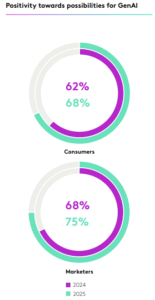The future of work is not just about automation; it’s about autonomy. We’re on the cusp of a revolutionary shift, moving beyond simple tools and algorithms to an era where intelligent, self-directed AI agents will play an increasingly prominent role in our economy. This is the agentic economy, and it’s poised to redefine everything from job roles to business models.
At its core, the agentic economy describes a system where AI agents are not just executing pre-programmed commands but are capable of:
- Understanding complex goals: They can interpret high-level objectives rather than just specific instructions.
- Planning and executing multi-step tasks: Breaking down a goal into sub-tasks and carrying them out independently.
- Learning and adapting: Improving their performance over time based on feedback and new information.
- Interacting with other agents and humans: Collaborating and communicating to achieve shared objectives.
- Initiating work: Proactively identifying opportunities or needs and taking action without direct human prompting.
Think of it this way: instead of using a spell-checker (a tool), a marketer might soon deploy a “content agent” that researches a topic, drafts a blog post, optimizes it for SEO, and even schedules its publication, all with minimal human oversight.





